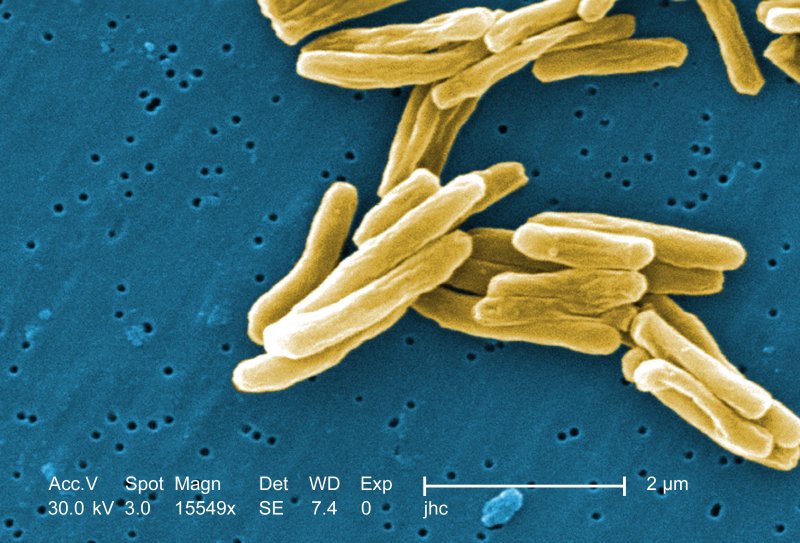Researchers have determined a way to differentiate the active form of the TB bacteria from its latent form in a diagnostic blood test able to be performed in both urban and rural areas around the world. Image courtesy the U.S. Centers for Disease Control and Prevention
STANFORD, Calif., Feb. 20 (UPI) -- Researchers at Stanford University have introduced a simple blood test capable of streamlining the process of diagnosing active tuberculosis.
The test, described in a study published in Lancet Respiratory Medicine on Friday, can detect a gene expression "signature" determining active TB, removing the need to collect sputum samples from patients.
In 2014, the World Health Organization called for scientists to develop better diagnostic tests for active TB. Senior author of the study, Purvesh Khatri, said the disease affects 240 million people worldwide.
Khatri's test is 86 percent effective in children and can identify active TB infections in patients with HIV as well. It does not give false positive results for the majority of those with latent TB or who have been administered a TB vaccine.
The test can revolutionize the process of diagnosing and treating TB because it is also accurate among recovering TB patients, helping physicians monitor the effectiveness of their treatments, researchers said.
It is a fairly simple test that can be performed in rural and remote locations, researchers said.
While the common method of collecting coughed-up sputum helps doctor's diagnose the disease, it becomes increasingly difficult to monitor them as they get better, co-author Tim Sweeney said.
The study identified three human genes which change their expression in a way that reveals the presence of active TB. Researchers confirmed the test through 1,400 human blood samples.
The research was funded by the Bill and Melinda Gates Foundation, the National Library of Medicine, the Stanford Institute for Immunity, Transplantation and Infection, the Society for University Surgeons and the National Institute of Allergy and Infections Diseases.















